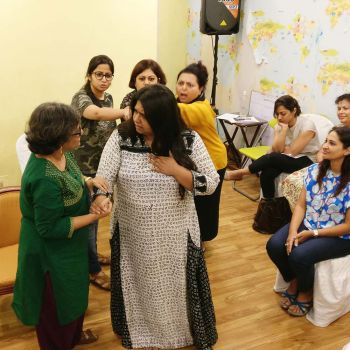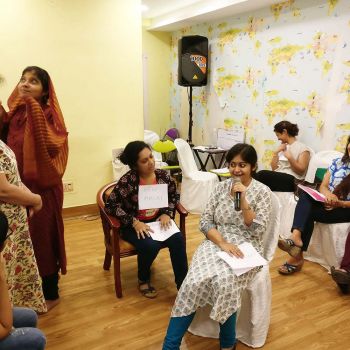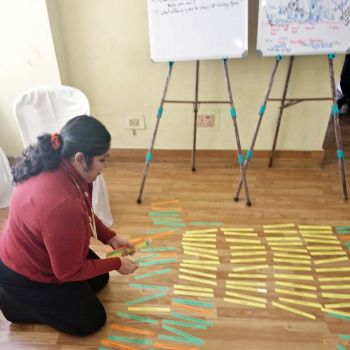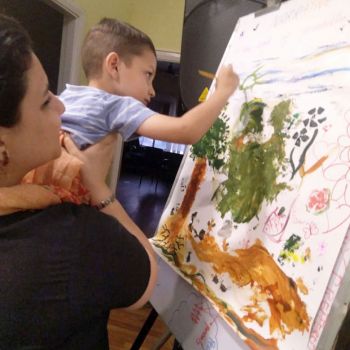The Format
Mental Health Foundation, Kolkata hosts Narrative Therapy and Practices Training in two blocks: Summer and Winter of each year.
Over the last two years (since 2017 spring / summer), Mental Health Foundation was host to training in Narrative Therapy and Practices. There were three blocks of training, 4days each. It comprised of introduction, delving into the philosophy of Narrative Practices, skill training in the craft of asking questions and co exploring Narrative “maps”. The training in blocks was interspersed by supervision sessions that helped participants practically explore the ideas. Learning is supported in peer groups overseen by the faculty from Ummeed. These sessions are held over online video conferencing facility at a frequency of 2 alternate weeks a month. A third batch is on the way. The training groups are small in number to a maximum of 20 participants. Introductory workshop can accommodate larger groups of 30 to 40 participants.
This format (already in practice at Ummeed, Mumbai) is followed to support MHF’s intention of going beyond only 2day workshops which may not always translate into skill training in therapy practices. It is felt that opportunities for peer supervision and supported practical learning over a long period of time are the format where chances of skill training are maximized.
The faculty is from Ummeed, Mumbai, who, in turn are affiliated with Narrative Therapy Practices, Adelaide following the seminal traditions of Michael White and David Epston. The participants were persons who work in the context of mental health from Kolkata as well as from outside the city.
Narrative Practices gradually becomes a way of life – full of respect, curiosity with an aim to develop personal agency in the face of difficult times.
Evolution of Narrative Practices
Narrative practices have evolved from the tradition of Family Therapy and draws largely from anthropology, languages, post-modern thoughts on feminism and post structural ideas. It is based on certain key ideas revolving around discourses of power. In the context of a human experiencing Mental health challenges, it is seen that not only is one robbed off certain basic mental and physical capacities, the power to deal with the problem with dignity and personal agency is most importantly challenged. Humans are natural problem solvers and once brought away from the over bearing dominance of the problem, one is likely to find their own way.
The training in Narrative practices was based on the idea that discovering preferred spaces of identity is co-constructed socially rather than in isolation. Interactions with others can either bring the skills and know-hows to the fore of visibility or push them further away from the awareness. The aspects of the self that we use to deal with adversities are our skills, knowhow, personal values, commitments and foremost- one’s sense of identity. Ability to make choices is the prerequisites to experiencing the locus of power in oneself. Power, then becomes synonymous with a sense of personal agency. Therapy in the Narrative perspective is to reinstill these in the client.
Narrative Practices: A Way of Life
In context of mental health, the disorder is often described as the problem. A problem, that Narrative Principles are clear to locate outside the person’s sense of self. It is an adversity the self is faced with and needs to overcome. The practitioner plays a key role of the social agent, co explorer who shows curiosity towards those aspects of the self which have been overshadowed by the problem. It is assumed that when persons are in touch with their preferred spaces, (that of awareness of personal agency), healing is maximized.
These ideas are practically translated into skill building through drama, exercises, scripts of conversations, practicing scaffolding questions and plenty of space for reflections. A personal observation shared my most if not all the participants was that of a subtle change, of a space that was getting created through the training process with our own selves. This is what is often referred to as “self work” that therapists often need. This self work got support from a trusting, trustworthy, knowledgeable and skillful group of peer supervisors under the mentorship of our faculties from Mumbai.































